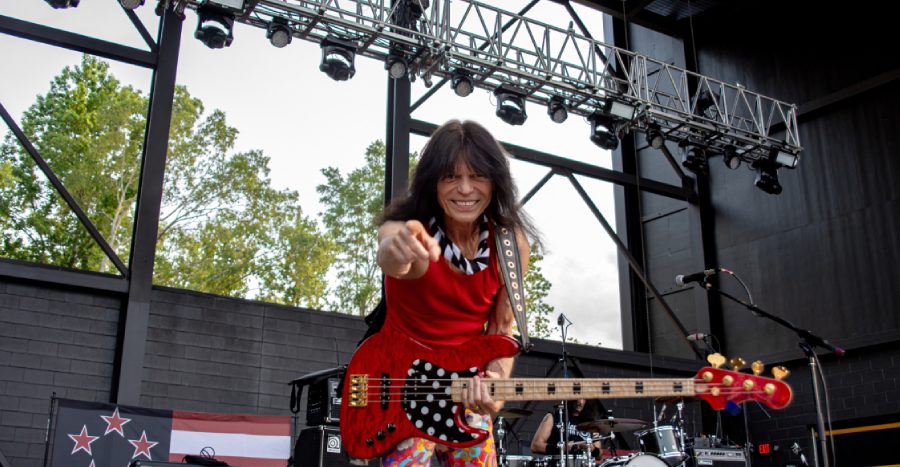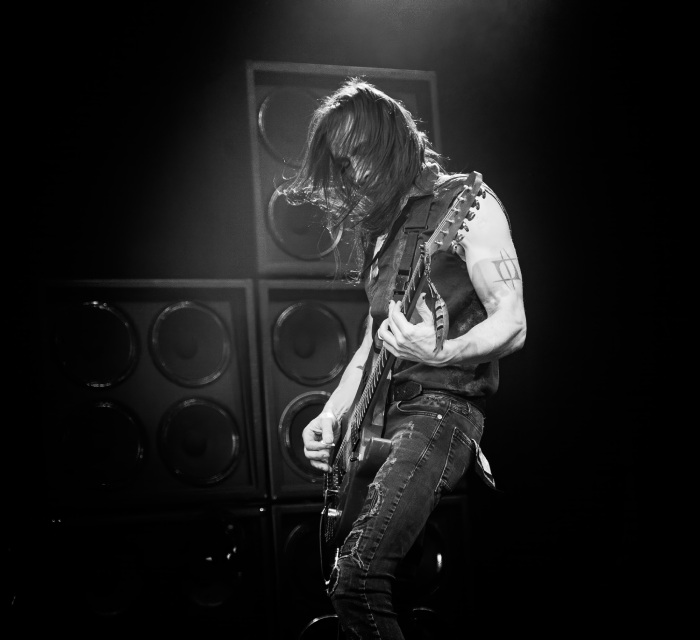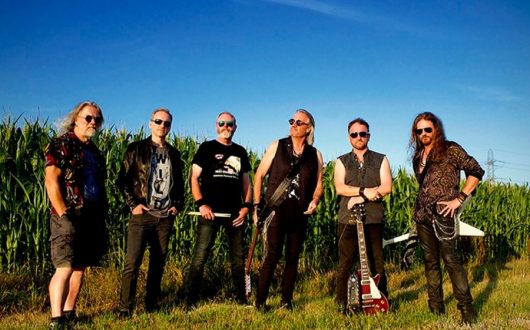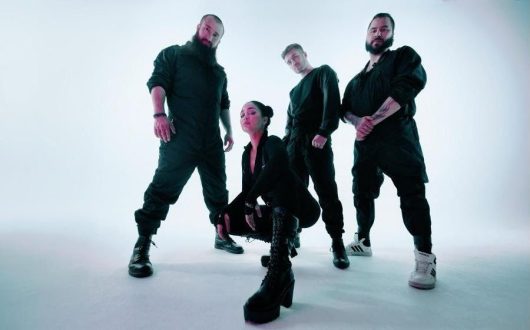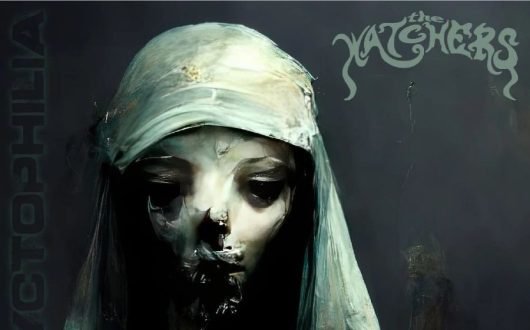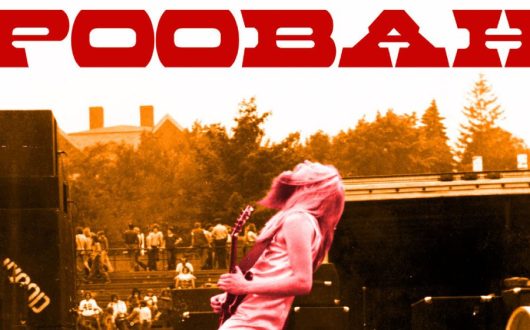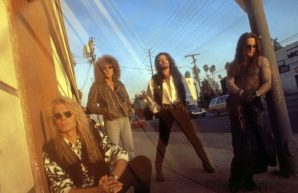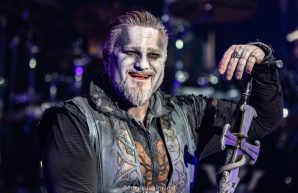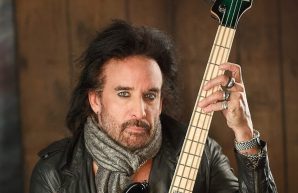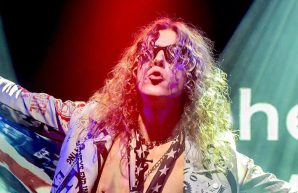Interview by: Mark Lacey
Photos: Myglobalmind
Rudy Sarzo discusses how Randy Rhodes inspired his journey with Quiet Riot, and why he continues to return home to perform their music
When history looks back on rock ‘n roll, there will be few greater servants than Rudy Sarzo. Aside from his lengthy, but intermittent, tenure with Quiet Riot, across a 40-year period, he has performed and recorded with some of the biggest rock bands in the world. From Ozzy Osbourne, Whitesnake, Dio, Geoff Tate, Blue Oyster Cult .. the list goes on. Despite his advancing years, recently turning 73 years of age, he remains a youthful, and energised force of nature, and 100% committed to commemorating the legacy of his fallen Quiet Riot comrades in the twilight of his career.
“My inspiration when I first joined Quiet Riot in 1978, was Randy Rhodes. He’s the single most inspiring musician I’ve ever played with. Randy was one of those pure musicians. We never talked about religion, politics, or who was going out with who. It was all about concentrating on how we were going to write the next song to get the attention of the record company so we can get a record deal”
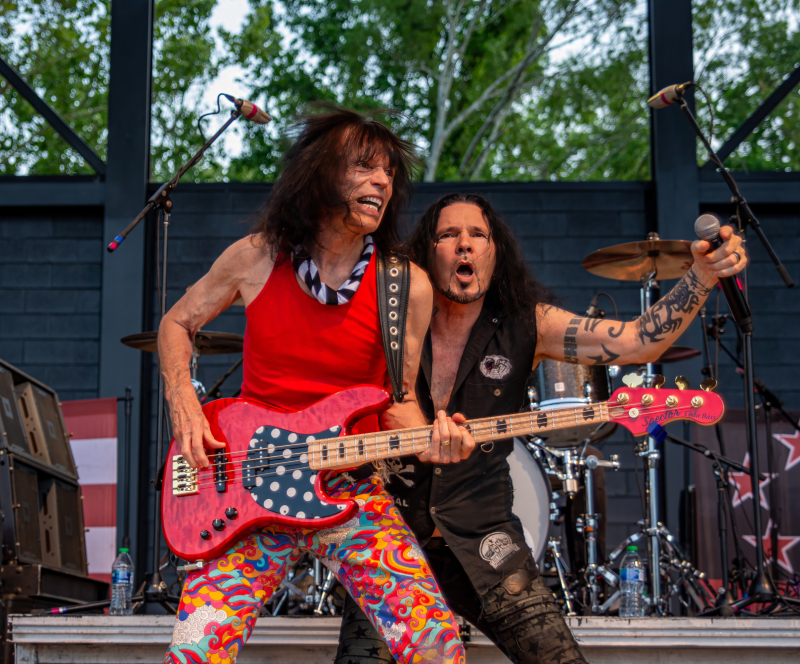
MGM: The last time many fans will have seen you in the UK was Donnington 1990, when you played with Whitesnake. What are your memories of that?
Rudy: It was really interesting because at the very beginning of that 1990 tour for the ‘Slip of the Tongue’ album, David announced to the band that he was going to take a long break. At the time, he was still happily married with Tawny, and so, I looked at every single show as an experience that I would probably never have again. It was just very bittersweet. It’s the whole thing about playing like there’s no tomorrow, because eventually there was no tomorrow for Whitesnake, as far as I was concerned. So, every show was completely meaningful; it was like the Superbowl every single night.
MGM: You initially joined Whitesnake after the 1987 album, alongside Tommy Aldridge, Adrian Vandenberg and Steve Vai, who’d taken over from John Sykes, and you became a completely new line-up for Whitesnake at that time. How do you remember it?
Rudy: Whitesnake were the special guest to Quiet Riot in 1984 when we toured America and headlined. I got to be very familiar with the band members, and I was a fan long before we ever toured together. I got a really good glimpse at the dynamics that were going on within the band. There was a bit of conflict, so I became aware of that, and I was going through my own conflict. I had given Quiet Riot notice that I was leaving at the end of the tour, but we kept it quiet. And then the very last night of the tour, we threw a going away party for Whitesnake and David gives me a hug as we’re going our separate ways. He whispers in my ear, “We’re going to be playing together very soon”. And I go, wow, how does he know that I’m leaving the band, because we didn’t make it public. So, I leave Quiet Riot, and within a couple of weeks, Tommy Aldridge and I got together to start a new band, and we got a call from Whitesnake’s management. We met with them and they offered us the rhythm section spot. I knew about the conflicts within the band, so I declined. Tommy also declined. It wasn’t until a couple of years later in 1987 that we got the phone call to come and be part of the video for ‘Still of the Night’. By then it was just David left in the band, so I felt, OK, this is going to be safe to go in now. It was blissful. It was an incredibly positive experience, and one of my favourite memories of everything that I’ve done so far, being in that band.
MGM: Changing the subject briefly, I discovered that you have the longest name in rock music circles – and one destined to put you on a path to rock stardom. Rodolfo Maximiliano Sarzo Lavieille Grande Ruiz Payret y Chaumont. Is that correct?
Rudy: Yes, but that’s the only thing that they have correct on Wikipedia. Thank God, I changed it to Rudy Sarzo before the Internet, otherwise my email address would be that long.
MGM: Your professional career started out back in the mid-seventies. Aside from Aerosmith, Led Zeppelin, and Black Sabbath, rock music was still in its early days, so who did you look to for guidance and inspiration at that time?
Rudy: I got inspired mostly by non-bass players. I’m looking at their passion and their love for music. That’s what I sought. Musicians that were great performers, passionate performers, but also musically very complex and dense, with a lot of knowledge about theory, harmony, and so on. Even musicians like Jimi Hendrix; I don’t think he was formerly trained as a musician, but he had such an incredible imagination for music. What an incredible writer. He could be the greatest electric blues player and then all of a sudden write something like ‘Angel’, and it just really inspired me. But what really sealed the deal for me, as my source of inspiration when I first joined Quiet Riot in 1978, was Randy Rhodes. And he’s the single most inspiring musician I’ve ever played with. Randy was the only musician that I’ve ever played with that was born into a musical academia family. His mum and dad were music professors. They built a music school called Musonia, which still stands in Los Angeles, not far from where I live. His family has kept it going. Randy was one of those pure musicians. We never talked about religion, politics, or who was going out with who. It was all about concentrating on how we were going to write the next song to get the attention of the record company so we can get a record deal. At one point, I started teaching at his mum’s school, and that’s when I first heard him play classical guitar, and I was not even aware that he could play like that. We had songs in our set where he would do classical picking on an electric, but that’s a whole different technique to actually playing a classical piece. I was blown away. I asked him, how come you don’t play like that in Quiet Riot? And he says, well, that’s not the direction that we’re going. That was in ’78, around the time when new wave and punk started to get the attention of the record companies. And we were then termed dinosaurs with the type of music we were doing. Randy would teach 8 hours a day and I would be there for a few hours with him, and then we would go straight to rehearsal, rehearse for 2 hours, and then the next day do it all over again. That was our life. I would say 80% of the day that we were awake, we had an instrument in our hands and we were playing. That’s what we did. Randy kept to that. When I started playing with him and Ozzy, he got the Guitar Player magazine ‘Best New Guitar Player’. He received the award on December 30th 1981. That was the first show of the ‘Diary of a Madman’ tour, and it was then he realised that people were listening and paying attention to what he was doing. He felt that he had a responsibility to improve and get even better than he was. Those are the things that I live by every single day. If I wasn’t doing this interview, I’d be watching YouTube and learning something new about music. How to take those twelve notes that we have to the next level; my own personal level.
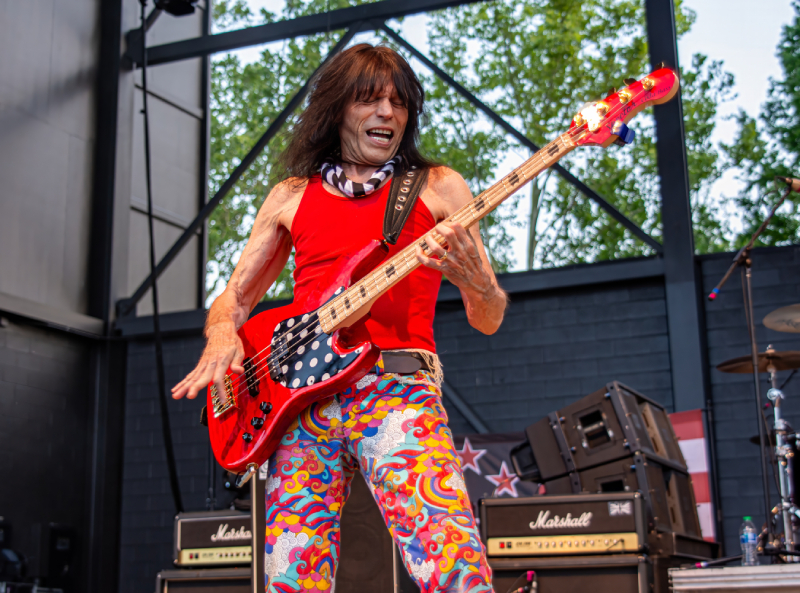
MGM: You’ve played with so many amazing musicians and different bands in your career, from Whitesnake, Dio, Ozzy, Geoff Tate, Blue Oyster Cult, and many others, including obviously Quiet Riot. Has your career taken the path that you expected over that sort of 40-50 years? And did it feel planned?
Rudy: It was actually better than I could ever imagine. I wrote a book about Randy, and in it, of course, I had to include myself because I had to let the reader know who I was and why am I so appreciative of everything that Randy has done for me. Not only Randy, but also Sharon and Ozzy; they don’t get enough credit, at least in America they don’t; for what they’ve done, not only for music, but for the musicians that Ozzy has had in his band. Sharon recently just got ‘cancelled’ here in the United States, and I got to tell you, I’m Cuban, and I was even more Cuban than I am right now, 40 years ago when I first joined the band. There were never racist comments towards me. I lived with them. I moved into their home, and I was living in the same tour bus, and we would get off the road and I would go back to living with them. They’ve had other ethnic musicians in the band, such as Robert Trujillo, Mike Inez, Randy Castillo, and I might be missing one or two. This whole thing about Sharon being racist is the biggest pile of bullshit I ever heard. There was a totally different motivation behind that. I am very grateful and I really appreciate what people have done for me in my career. Without them, we wouldn’t be having this conversation.
MGM: Throughout your tenure with Quiet Riot, you’re recognised as the longest-serving member of the band, across four different time periods. What is it that keeps drawing you back to Quiet Riot?
Rudy: I’ve actually only left the band once. In 1979, Randy left to join Ozzy, and the band ceased to exist. Kevin put out his own band, DuBrow, and it was like a revolving door of musicians, and I was one of them. I was playing in another band, too, but also, I was living with Kevin. Then Randy died, and I lost the complete joy of making music, and I needed to go back to my original Quiet Riot consciousness. When I say that, what I’m actually saying is Ozzy and Tommy had been rock stars for 15 years, at least, before I joined Blizzard of Oz. Randy and I were the only ones starting out our career. So, that mindset is what we share, that consciousness. And I needed to go back to that. I needed to go back to the people that I grew up playing with, and there were two. There was Kevin Dubro, who I already played with in Quiet Riot, then lived with him, and played with him in DuBrow. Then there was Frankie Banali, and we went back to 1972. That’s when we first met, and started playing together locally in Florida, then disco happened. We left Florida, and we toured the whole Midwest, and then we moved to LA in ‘77. We ran out of money; we went separate ways. And I came back to LA in ‘78, and that’s when I joined Quiet Riot. Four years later, Frankie’s playing in DuBrow, and I get a phone call while I was still a member of Ozzy from Kevin saying, “Hey, there’s a possible record deal. How would you like to come down to the studio and record ‘Thunderbird’”. That was the song that he wrote for Randy, when Randy left Quiet Riot. And then I started playing that song with him in DuBrow, so I knew it. I go in the studio, and there is Frankie already. I’m like, this is incredible. It’s taken us ten years to actually get to this point of the two of us recording a song. It went by really quickly. Carlos Cavazo, who I’d never met before, was the guitar player. But what really hit home with me was playing with Kevin and Frankie again; the people that I’d been growing up making music with ….. going through all those trials and tribulations of trying to get a record deal. By the time I left that session, I had recorded ‘Thunderbird’, ‘Slick Black Cadillac’, which was the only song that made it from the Randy Rhodes era to the ‘Mental Health’ record. There’s a song written by Kevin, and then two DuBrow songs, ‘Love’s a bitch’ and ‘Let’s get crazy’. So, I already recorded four songs, but I was still a member of Ozzy. And then I went over a couple of days later to record ‘Speak of the Devil’, which were the Ozzy / Black Sabbath re-recordings. But the thought of reconnecting with Frankie and Kevin just kept lingering. By the time I finished that session with Ozzy, I went back to LA and I made the toughest decision I’ve ever made, which was to leave one of the biggest bands in the world, and the people who treated me great for the complete unknown. It was renamed Quiet Riot from DuBrow once I rejoined the band, and then we signed the record deal. I was going to get the joy of making music again, and to me, that’s what drives me. If I don’t have joy in what I’m doing, I can’t go on.
MGM: That junction sparked the creation of those two iconic albums; ‘Mental health’, and then ‘Condition critical’. Those two albums still play a major part in your live set, and still resonate with fans 40 years later. Why do you think they have lasted the test of time so well?
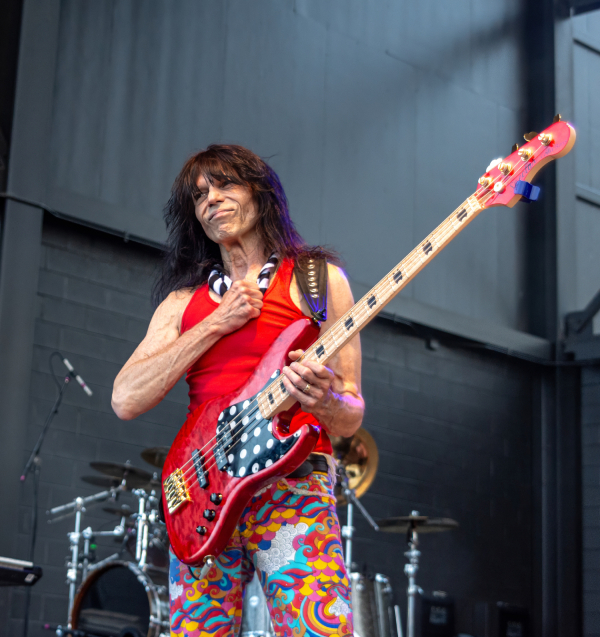
Rudy: One of the things that I have to give credit to is the band, and the consciousness of the band. The only compromise that was made was, in order to get the record deal, Kevin had to agree to sing ‘Come on Feel the Noize’. That was it, Kevin wanted to keep it as original as possible.
MGM: Quiet Riot have seen many line-up changes throughout the years. Your current line-up includes yourself, Alex Grossi, Johnny Kelly and Jizzy Pearl. Whilst all of you have had varying tenures with Quiet Riot throughout your history, the four of you have never all played together on the same record. Also, Johnny hasn’t recorded with Quiet Riot at all, although he and Alex both played together in Dizzy Reed’s ‘Hookers & Blow’ band. What is it about this line-up that makes it quintessentially Quiet Riot rather than just four musicians? And how would you describe the sound and feel of the band in 2024?
Rudy: I have a very simple answer for that. We were talking earlier about me leaving only once. The band broke up in ‘79 when Randy left. Then I came back for ‘Mental Health’. I left the band in ‘85 because it became toxic. Then we reunited in ‘97 and the band imploded. I can tell you exactly the moment in time that it happened. In 2003 …. 21 years ago, it imploded. So, then I joined Dio, and slowly, Frankie and Kevin started playing together again. They never asked me back. I guess they figured I was playing in Dio and I wasn’t interested, but they never did. And then recently, right before Frankie passed away, he expressed his wishes that I would return to the band, which is why I’m here. This is exactly the same reason why I returned to what became known as the Mental Health version of Quiet Riot after Randy died, because I needed to go home. It was the best way that I could celebrate the memory of Randy Rhodes, because everything that he had revealed, internalised and realised as a musician had roots in what we were playing in Quiet Riot. Not exactly the musical direction, but the integrity of who Randy was as a musician.
In 2003-2004, when the band reformed with Kevin and Frankie, Alex Grossi has been the guitar player ever since. He was groomed by Kevin in the whole Quiet Riot belief system. And then Frankie joined the band, and then Kevin passes away, so Frankie brought in Jizzy Pearl. So, you got two members groomed and approved by members of the band. Before Frankie passed away, he asked Johnny Kelly to substitute him. Frankie never really formally said, “I’m quitting playing”, because that’s what kept Frankie alive, going “I can beat this. I can beat this”. But unfortunately, he passed away. When I rejoined in 2021, we only did about three shows in 2021, but we picked it up in 2022. By the time I rejoined this version of the band, these were musicians who had already been handpicked by the original previous members. So, I could not ask for a better bunch of guys to be on stage with than Alex, Jizzy and Johnny, if the other members are not with us. These guys are incredible to go on stage with.
MGM: During your recent shows in Canada, you paid tribute to those former members Randy, Kevin, and Frankie during the song ‘Thunderbird’, which was a really touching moment. The band are finally returning to the UK to play two special shows on 9th and 10th March. The band first performed here in 1983, supporting Judas Priest, and returned for some headline shows in 1984, but the only other Quiet Riot show performed in the UK was a one-off date in 2016, when you weren’t performing with the band.
Rudy: The first time I performed in the UK was actually Port Vale, 1981 with Ozzy. That year we came back; we started the pre-production and the touring for the ‘Diary of A Madman’ record. We did some shows with the band Girl opening up for us in England. And then I came back with Quiet Riot in November / December of ’83 with Judas Priest. That was the first time that Quiet Riot, the Mental Health version, actually got to play there. Then we came back and we did our own headline tour in ‘84. And I believe that’s the last time that I actually did play the UK with Quiet Riot. It’s 40 years ago.
MGM: After you finish these dates in the UK, you’ve got many other dates in the US, but what else does the future hold for you and the band? Do you think there might be opportunities for you to record anything with this line-up, either in the studio or live?
Rudy: We did release one new song last year that has a little bit of a history because it was the last release, including Kevin DuBrow and the song is called ‘I Can’t Hold On’. But besides that, we haven’t. The issue with us releasing new material is that our set list is like all the favourites. And if we start removing favourites, people are going to come to the show expecting them to be performed and they’re not there. We go on the road every weekend. And this is the first time ever in my career that I actually have a purpose besides rocking out and banging my head. My purpose as a band member, and this is something that we all agree on, is to celebrate the legacy of the band; the musical legacy and the memory of Frankie Bonali, Kevin DeBrow, and Randy Rhodes. That’s my purpose. And that’s what gets me out of bed. To do that gladly. And every single show is a celebration.
MGM: You and Glenn Hughes are a similar age, and both are in the twilight of your career. When MGM interviewed Glenn last year, he was showing no signs of slowing down. No one can play and tour forever, but how much longer do you think that you can still be out on the road and doing this at the level that you want to?
Rudy: Recently I’ve been studying quantum physics and I came to learn that according to quantum physicists, there’s no time, there’s no space. It’s all continuous. It’s in the now. So, I live in the now. I don’t really think about the past as much, but I don’t really look too far ahead because now is all I have got. And right now, I’m just getting started, from my perspective. I wrote this in my book, and while I was still a starving musician sleeping on Kevin Dubrow’s spare bedroom floor, I made peace with God. And my agreement was that as long as my fingers kept moving, I was going to keep playing. And they’re still moving, so I keep playing.
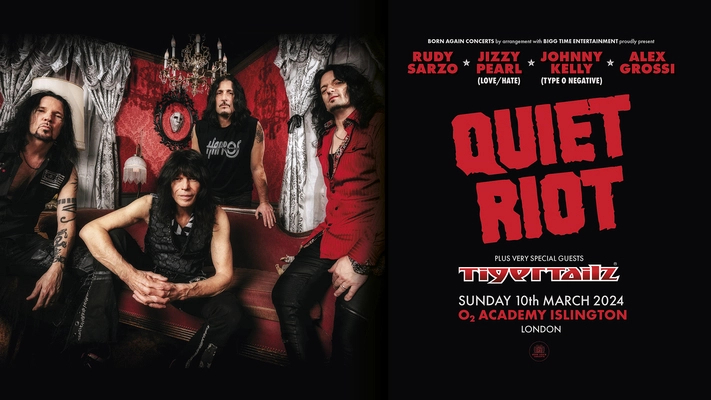
Quiet Riot will be performing in the UK:
Saturday 9th March: HRH AOR, Great Yarmouth
Sunday 10th March: O2 Islington Academy, London
